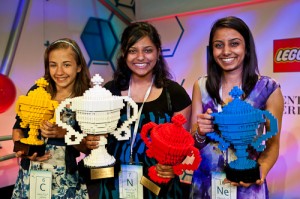Taking the traditional science fair out of the school gymnasium and placing it on the Web, Google launched its 2012 Global Science Fair yesterday, a follow-up to last year's inaugural event.
The fair is open to any student (age 13 to 18) from anywhere who has access to the Internet and to a Web browser.
This year, Google is taking the "global" aspect of the contest seriously, allowing submissions in 13 different languages (last year's were only accepted in English). The company will also select 90 regional finalists -- 30 from the Americas, 30 from the Asia-Pacific region, and 30 from Europe and Africa. It's about "guaranteeing more global coverage," says Maggie Johnson, Google Director of Education and a Google Science Fair judge.
As with last year's event, Google has assembled a prestigious judging panel that includes Google Internet Evangelist Vint Cerf and particle physicist and Nobel Prize winner. And the prizes for the winners are not insignificant: the grand prize is a $50,000 scholarship, a trip to the Galapagos lead by a National Geographic Explorer, a hands-on internship at Google, CERN or LEGO, access to the Scientific American archives for their school and a personalized LEGO trophy. Two other finalists will each receive $25,000 scholarships, access to the Scientific American archives, and a LEGO trophy.
In response to last year's criticism from the New York Times questioning whether the event was simply a marketing ploy to expose students to Google products (you can read the MindShift take on it here), Johnson addressed the company's the motivation behind the fair.



